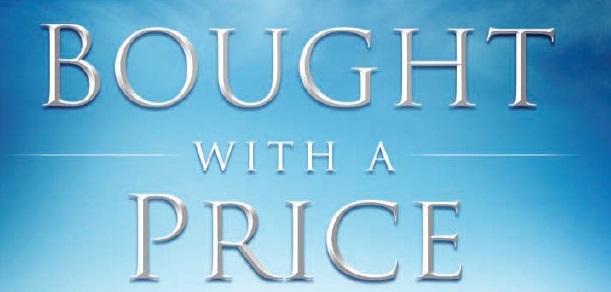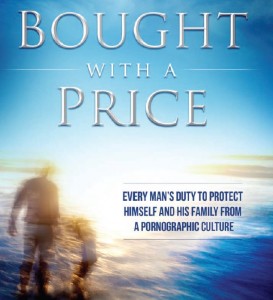Modern Martyrdom – It’s For Real
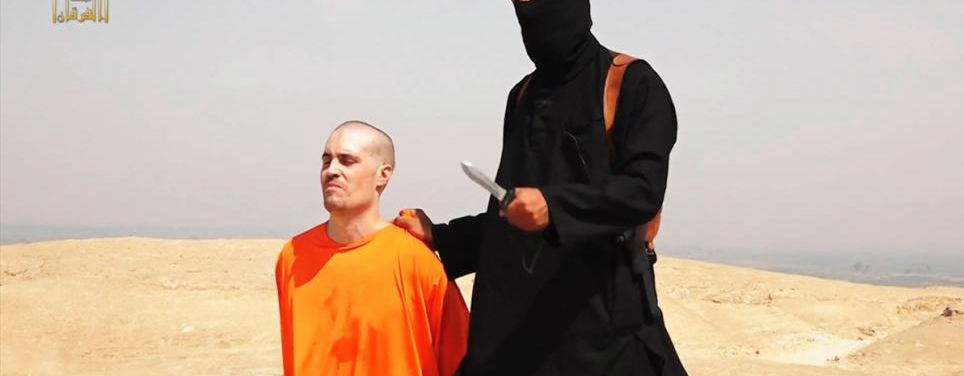 James Foley is, seemingly, a saint; a living witness to the faith. He very literally gave his life for the sake of the Kingdom. He was beheaded for being a Christian. From what I can tell, he lived heroic virtue, especially in the face of persecution, even to the point of death. The Catechism of the Catholic Church describes martyrdom as “the supreme witness given to the truth of the faith: it means bearing witness even unto death. The martyr bears witness to Christ who died and rose, to whom he is united by charity. He bears witness to the truth of the faith and of Christian doctrine. He endures death through an act of fortitude.” (CCC 2473.)
James Foley is, seemingly, a saint; a living witness to the faith. He very literally gave his life for the sake of the Kingdom. He was beheaded for being a Christian. From what I can tell, he lived heroic virtue, especially in the face of persecution, even to the point of death. The Catechism of the Catholic Church describes martyrdom as “the supreme witness given to the truth of the faith: it means bearing witness even unto death. The martyr bears witness to Christ who died and rose, to whom he is united by charity. He bears witness to the truth of the faith and of Christian doctrine. He endures death through an act of fortitude.” (CCC 2473.)
James Foley was a journalist working to make the plight of the Syrian people known to the world. They have been oppressed and tortured, and most recently, as I hope we are all aware, have been brutally murdered, often by beheading, by Islamic terrorists. His work put him in terrible situations, and he knew his life was in danger. He was proud of the work he was doing, and knew well the reality of the holy war taking place in the Middle East.
 Jim was a Catholic, and believed firmly in prayer. During his time in the Middle East, he was held captive, and ultimately, was beheaded by the terrorist cell The Islamic State (IS). Their cowardly act of absolute destruction of human life was horrific, while Jim’s witness was absolutely beautiful. He was a TrueMan! In the face of danger, he was courageous. In the face of persecution, he was faithful. In the face of evil, he was true goodness. He lived charity, and gave his life as a witness.
Jim was a Catholic, and believed firmly in prayer. During his time in the Middle East, he was held captive, and ultimately, was beheaded by the terrorist cell The Islamic State (IS). Their cowardly act of absolute destruction of human life was horrific, while Jim’s witness was absolutely beautiful. He was a TrueMan! In the face of danger, he was courageous. In the face of persecution, he was faithful. In the face of evil, he was true goodness. He lived charity, and gave his life as a witness.
In a recounting of his first captivity in Libya in 2011, Jim wrote about how prayer, the Rosary specifically, got him through. He wrote: “If nothing else, prayer was the glue that enabled my freedom, an inner freedom first and later the miracle of being released during a war in which the regime had no real incentive to free us. It didn’t make sense, but faith did.”
Here’s a video showing his parents – talking a little about Jim and his faith.
So the question for us now is, “Do you realize that martyrdom is a real possibility in our world?” I often hear people talking about “those other people” who were martyrd, as if it couldn’t (and won’t) happen to us. I suggest that each man reading this post consider what he will do in the face of oppression, so that when that day comes, he will know and will be prepared. Brothers, we cannot wait to prepare, because the forces of evil are strong, and they are coming for us. Whether it be terror cells like the IS, or some other form of hatred towads Catholics, we will experience persecution, and it may even lead to our death. If you’re living virtuously now, it will make all the difference then. Virtue = authentic masculinity. Virtue = TrueManhood.
TrueMan up!
Is a Bad Dad Better Than No Dad?
May 8, 2014 by admin
Filed under Blog, Evangelization, Faith, Fatherhood, manliness
 Recently, I had a discussion with a woman on the topic of fatherhood. During our conversation, she was adamant that a child having a bad father in the picture is better than no father. I disagree with her, but understand at a basic level why she would believe this. I also sympathize with her, aware that her situation was extremely difficult to bear. Now that I’ve given it more thought, I think she may have been combining some thoughts together, associating a bad father with a father who is at least present.
Recently, I had a discussion with a woman on the topic of fatherhood. During our conversation, she was adamant that a child having a bad father in the picture is better than no father. I disagree with her, but understand at a basic level why she would believe this. I also sympathize with her, aware that her situation was extremely difficult to bear. Now that I’ve given it more thought, I think she may have been combining some thoughts together, associating a bad father with a father who is at least present.
If having a bad father in their life simply means that the child can feel a sense of acceptance and that someone desires them, then maybe I could agree with her. However, being a child requires, and makes us yearn for, much more. [Here’s a powerful clip from “The Fresh Prince of Bel Air” – the other videos in the playlist can’t be removed, sorry.]
Things to keep in mind: “bad” here is used not as an extreme word, but merely as a way to describe a man who is not living up to his role as father, even in the basic sense. Call it judgmental (that would be a misuse of the word) or hateful, but at some point, we have to call a spade a spade. A bad father isn’t present to his children, does not give them encouragement, nor inspiration, nor assistance, nor guidance, nor education. A bad father lacks affection, affirmation, recognition, and compassion, and he shows no mercy. Essentially, a bad father is the opposite of everything that God the Father is and that which a good 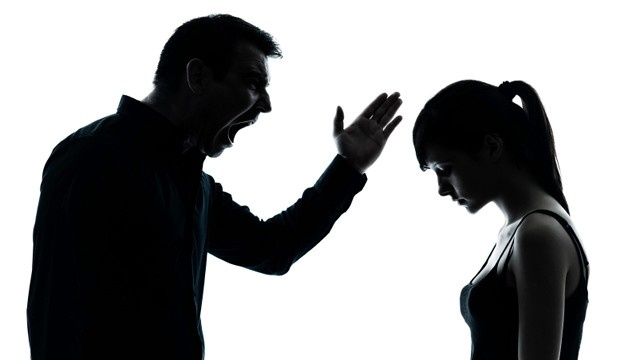 father should strive for.
father should strive for.
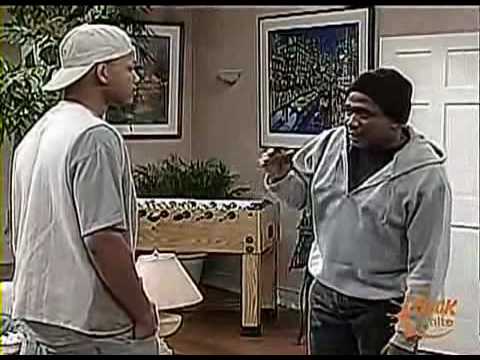 I wrote a post not too long ago, with a video, about my nephew (and his siblings.) In the post, I discussed how his father was in the picture, but how his involvement is detrimental, and how these kinds of situations require other men to step in and be the father figures that children need. Maybe there’s an element of timing in this discussion… for instance, the time in a child’s life may dictate whether or not a bad father’s presence is beneficial. I’m sort of just writing my jumbled up thoughts right now because I really don’t know. Maybe too, it depends on each kid. Perhaps it is best that a bad father isn’t around in the teen years, but during the adolescent years? (We should get this discussion going on the TrueManhood.com Facebook page.)
I wrote a post not too long ago, with a video, about my nephew (and his siblings.) In the post, I discussed how his father was in the picture, but how his involvement is detrimental, and how these kinds of situations require other men to step in and be the father figures that children need. Maybe there’s an element of timing in this discussion… for instance, the time in a child’s life may dictate whether or not a bad father’s presence is beneficial. I’m sort of just writing my jumbled up thoughts right now because I really don’t know. Maybe too, it depends on each kid. Perhaps it is best that a bad father isn’t around in the teen years, but during the adolescent years? (We should get this discussion going on the TrueManhood.com Facebook page.)
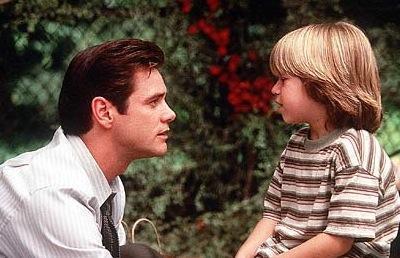 As I’ve written and said many times, our children learn from us, good or bad. If we fail as fathers, our children will learn that fatherhood and/or masculinity is something other than what it actually is – believing that our failure is normal and acceptable. I do not believe that we can substitute authentic masculinity when it comes to our children – they need to know it,
As I’ve written and said many times, our children learn from us, good or bad. If we fail as fathers, our children will learn that fatherhood and/or masculinity is something other than what it actually is – believing that our failure is normal and acceptable. I do not believe that we can substitute authentic masculinity when it comes to our children – they need to know it, 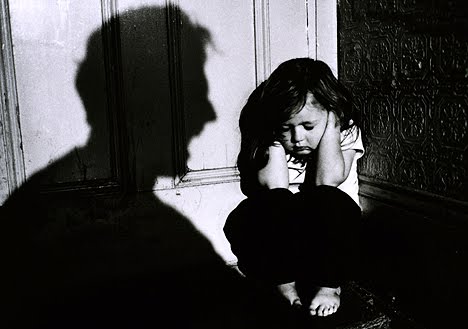 be surrounded by it, and be taught it so that they are able to thrive in life. TrueManhood is one of the most basic tenants of humanity, and literally as old as mankind.
be surrounded by it, and be taught it so that they are able to thrive in life. TrueManhood is one of the most basic tenants of humanity, and literally as old as mankind.
So I pose a thought for you to consider… is it better for a child to have a bad father in their life or to have no father present at all? I’m sure that we can all agree that children with great dads are always best off. I’m certainly striving to be a great dad for my kids, won’t you strive to give that to your kids, too?
TrueMan up!
Vikings – Filled with Faith, and Masculinity
April 24, 2014 by admin
Filed under Blog, cultural manliness, Faith, Fatherhood, manliness, Military, Virtue
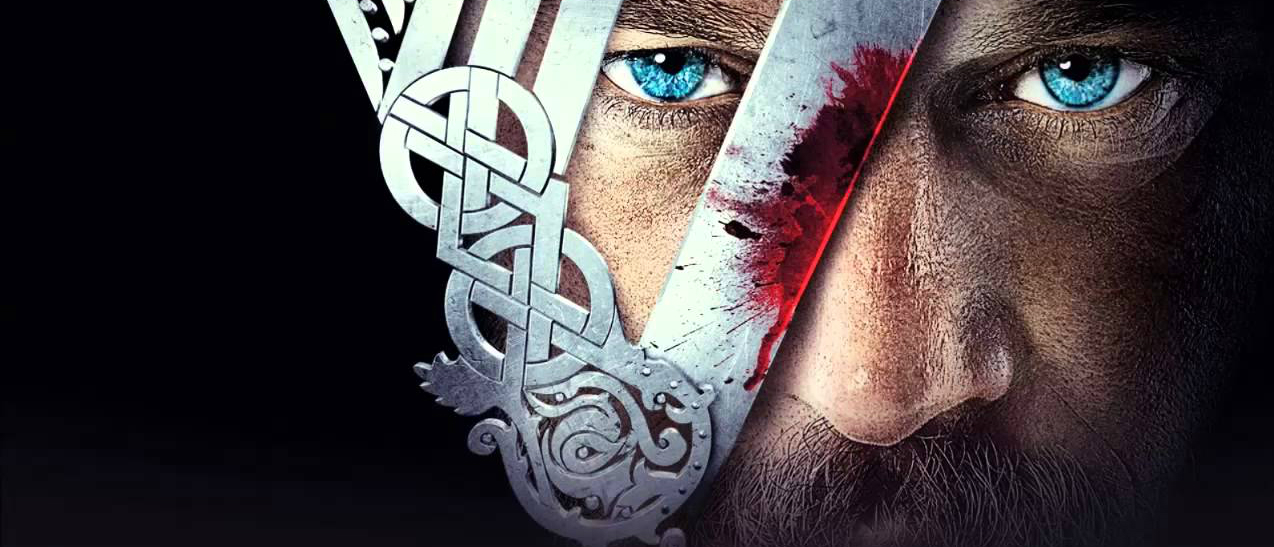 Early on when I heard about the show “Vikings” on the History Channel, I was very intrigued. When I watched the first episode on our Roku, it unfortunately lost me fairly quickly. My first impressions were that the acting was subpar, and the accents were pretty distracting. At the prompting of my good friend Jared Zimmerer, I gave it another chance and watched episode two. Something about it began to reel me in and I have subsequently watched all of the episodes to date.
Early on when I heard about the show “Vikings” on the History Channel, I was very intrigued. When I watched the first episode on our Roku, it unfortunately lost me fairly quickly. My first impressions were that the acting was subpar, and the accents were pretty distracting. At the prompting of my good friend Jared Zimmerer, I gave it another chance and watched episode two. Something about it began to reel me in and I have subsequently watched all of the episodes to date.
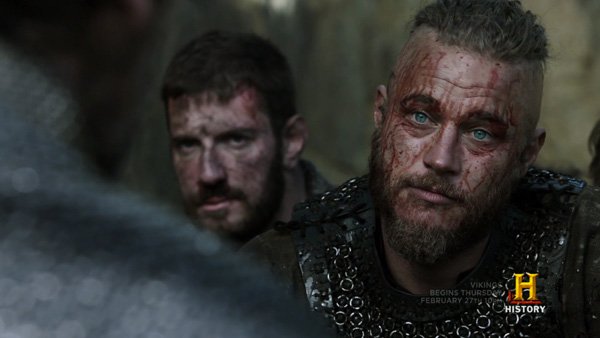 I’m intrigued by the story for many reasons. I’ve finally decided to blog about it now especially because of the most recent episode called “Boneless”. Vikings is the story of Earl Ragnar Lothbrok (a legendary Norse ruler), his conquests, his family, and the general life and happenings of the “Northmen.” I enjoy watching the fight scenes, which are pretty decent. I also enjoy the drama between the various leaders, the imagery between good & bad, right & wrong, the marriages and relationships, but there are two very impressive themes that keep me coming back.
I’m intrigued by the story for many reasons. I’ve finally decided to blog about it now especially because of the most recent episode called “Boneless”. Vikings is the story of Earl Ragnar Lothbrok (a legendary Norse ruler), his conquests, his family, and the general life and happenings of the “Northmen.” I enjoy watching the fight scenes, which are pretty decent. I also enjoy the drama between the various leaders, the imagery between good & bad, right & wrong, the marriages and relationships, but there are two very impressive themes that keep me coming back.
The first is how much the show’s writers and the actors have incorporated faith into the show. The Vikings are referred to as pagans, but that’s not what comes across the screen. The Vikings come across, to me, as being very faithful. They are polytheistic, but they are constantly thinking about, speaking about, and invoking their gods. This is not something often celebrated in our culture. Faith, especially of warriors, is often seen as unnecessary and as a weakness. Clearly, these Viking warriors invoke their gods, and find need to be in prayer, sacrifice, and worship of their gods. It’s hard at times to watch because they believe that their gods call for murderous, ravenous, barbaric behavior, and a crude form of justice, so naturally it doesn’t lineup with Christianity. One flaw, typical of Hollywood… the element that shows Christians in a horrible light – as weak, superstitious dummies, incapable of personal thought and masculine leadership. Besides that, though, I’m impressed.
I find it very interesting that faith is found as such an important and normal part of their lives. That’s what I want to highlight… their faith that is all-encompassing. They think about their gods constantly. It is engrained in the show by being engrained into the lives of the characters. The characters are constantly talking about their gods, and the imagery shows that.
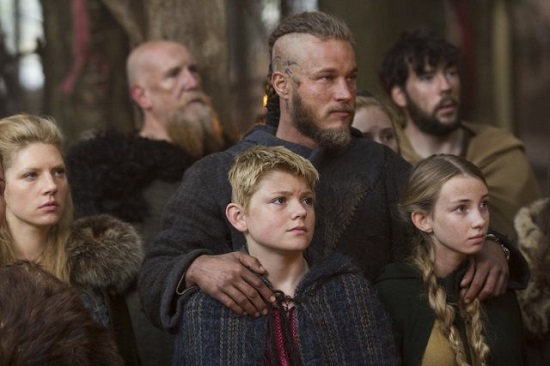 The second point, and maybe even more important, is how pro-life the show is. It seems a contrast to a barbaric, ravenous people, but in this last episode, the wife of Earl Ragnar gives birth to a child that has a limb that apparently doesn’t function fully. They don’t really show it exactly, but they refer to him as a ‘runt’. At one point, Ragnar discusses with his wife about the child never having a full life, and asking the question “what could his life possibly amount to?” The wife says, “Yes, you are correct, but I love him.” She gives the child a chance.
The second point, and maybe even more important, is how pro-life the show is. It seems a contrast to a barbaric, ravenous people, but in this last episode, the wife of Earl Ragnar gives birth to a child that has a limb that apparently doesn’t function fully. They don’t really show it exactly, but they refer to him as a ‘runt’. At one point, Ragnar discusses with his wife about the child never having a full life, and asking the question “what could his life possibly amount to?” The wife says, “Yes, you are correct, but I love him.” She gives the child a chance.
There’s a scene where, during the night, Ragnar goes into where the baby is sleeping, and he takes him, walking out near the river. As a viewer, I was spellbound, questioning what Ragnar was going to do. He takes out his hatchet, and it looks like he’s going to kill his son, saying “there is no other way.” The scene cuts away to Ragnar walking away from his son, leaving the viewer wondering. This is a symbol, to me, of parents who feel like they have no other option when it comes to abortion. There is seemingly nothing else they can. It turns out that Ragnar didn’t kill his child, but rather, he chose life! Even though it was incredibly difficult for him to do, he chose life!
I think it’s interesting, in our culture, that is so pro-death, so ready to discard the humans that appear to be less-than, that this show would embrace faith and would embrace concepts of masculinity (albeit flawed, tremendously), but it embraces life. The concepts of masculinity are interwoven throughout, especially the topics of being a husband, a father, a friend, a brother, a worker/provider, a warrior, and a follower of God. I will continue to watch.
Note: There are some potentially scandalous parts of this show, specific to sexuality. You may choose not to watch because of that.
TrueMan up!
3 Most Damaging Words? – Nope
March 12, 2014 by admin
Filed under Blog, cultural manliness, Faith, Fatherhood, For Women, manliness, pornography, Virtue
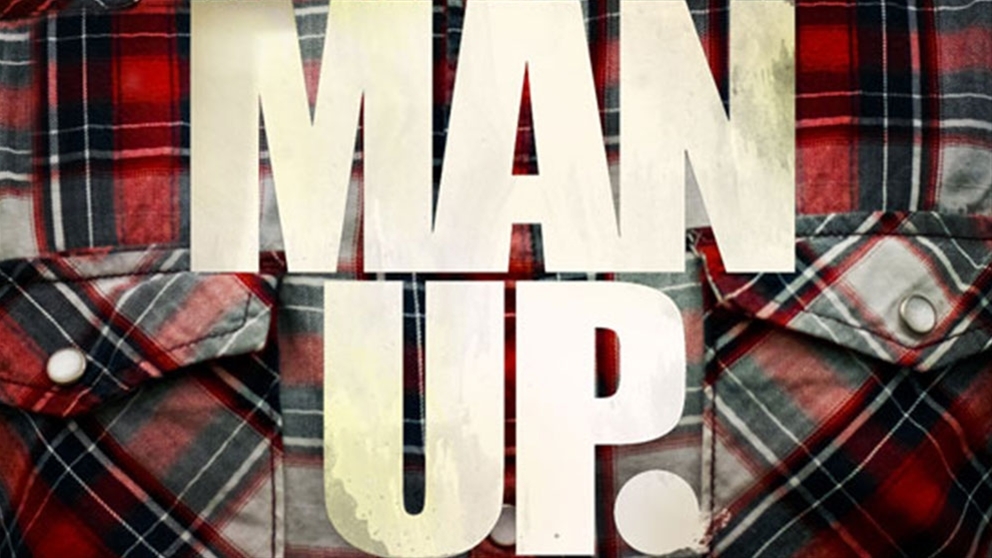 Have you seen the PSA style video “The Mask You Live In”? It talks about boys in our culture, and stereotypes of how boys handle the stresses of growing up male, in addition to the struggles of living up to the standards the culture and peers place on them. There are truths in the video, but I disagree with their take on “the 3 most destructive words you could say to a boy.” Here’s the video:
Have you seen the PSA style video “The Mask You Live In”? It talks about boys in our culture, and stereotypes of how boys handle the stresses of growing up male, in addition to the struggles of living up to the standards the culture and peers place on them. There are truths in the video, but I disagree with their take on “the 3 most destructive words you could say to a boy.” Here’s the video:
The suggestion is made that telling a boy to “Be a Man” is detrimental to him. If we’re speaking from the context of cultural manliness, then sure, I could see that. If, however, we’re speaking from the context of authentic masculinity (ie: TrueManhood), then this is absolutely what we should be telling our boys! We should be encouraging them, teaching them, forming them, and exemplifying for them what it means to be a man so they are able to set a goal and become what they were created to be. A TrueMan!
We must, unequivocally, call, lead, and guide our boys into true manhood. We must expect it, and set our boys up to meet the expectation. If we do not, they will land somewhere on either extreme. On the one hand, we have a “hyper-masculinity” (other negative words have been associated with this, such as “macho man or machismo”, “bravado”, “meathead”, “jock”, etc.) and on the other, we have an effeminate version of masculinity (which doesn’t even make sense), which is incredibly disordered. In fact, both versions are a false, counterfeit version, and are incredibly disordered.
Some of the buzz words used, and my thoughts: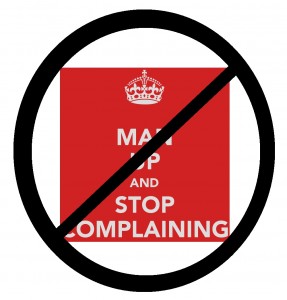
- “Don’t cry.” Men, you can cry. God wouldn’t have given us emotion and tear ducts if He didn’t want us doing it. And oh yeah, Jesus wept.
- “Pick yourself up.” Yes, we’re going to fall. Pick yourself up and get back on track.
- “Respect.” Respect is earned. Give it, and you will likely gain it in return.
- “Proving masculinity.” Yes, this has to happen. This is how we grow in virtue, by proving our masculinity. This is very different from the view the video takes, which is speaking about becoming violent or using violence to be the proof.
- “Closeness.” This is very hard for males in our society! It is vital, essential, critical that fathers have a closeness with their sons! Hugs, kisses, embracing, physical closeness, as well as emotional closeness and a spiritual closeness are all so important between fathers and sons. (Thanks Dad, for always being close when I was a kid, and now.)
- “Vulnerability.” Our culture tells men that being vulnerable is feminine. Vulnerability actually requires strength.
- “Hyper-masculine.” When masculinity is distorted, it will appear to be either side of the extremes, but never what it should be.
What I don’t like about the video is that it generalizes all of the negative aspects of masculinity overall, as if there is or needs to be some redefined version of masculinity out there. No, there are two versions of masculinity: 1. The truth. 2. The lie. That’s why TrueManhood.com exists, to perpetuate the truth, and to help get rid of the lie. The truth is that a man (a human being with an XY chromosomal makeup) has the God-given ability, and the responsibility, to live up to what he was created for – to live virtuously. The lie is cultural manliness; the more power, money, sex, and stuff a male has, the more manly he is. Let’s work together, not at the loss of the truth, but together so that the truth can be proclaimed!
TrueMan up!
Bought with a Price
March 9, 2014 by admin
Filed under Blog, cultural manliness, Faith, Fatherhood, For Women, manliness, pornography, Virtue
I am profoundly excited to bring you a great anti-pornography resource, a revised edition of a Pastoral Letter from Bishop Paul Loverde from the Diocese of Arlington, Virginia. This pastoral letter originally came out eight years ago, but has been reissued because of the severe and overwhelming need. “Bought with a Price” – Every Man’s Duty to Protect Himself and His Family from a Pornographic Culture. It includes a new foreword from anti-porn leader, Matt Fradd.
The intended re-release of this letter is March 19, 2014 – the Feast of St. Joseph, patron saint of fathers. I highly encourage everyone to read this letter and put what you read into action.
“Today’s father must protect himself and his children from the relentless assault of an increasingly pornographic culture; moreover, mothers share this sacred task. Every home now stands in the pathway of this attack on our children’s innocence and purity. If we are not vigilant, our sons and daughters will pay a steep and heartrending price.” p.6
Fathers – it is critical that we work to protect ourselves and our families from the evils of pornography. First, ourselves, and then those around us and under our care.
 In a future post, I will write on the topic of “helping parents protect their children from the internet” – a talk that I give about the harms of the internet and how to practically handle the situation. One of the most important aspects of this topic is to have conversations with our children. If you think that your child isn’t or won’t be affected by pornography, you are wrong. If your children have internet accessible devices and you don’t know that they can (and probably do) access pornography, you are naïve. How then do you handle this? You talk about it! And it’s never too early to talk about it… when done properly, prudently, and age-appropriately. (Note: the average age of first exposure to pornography in America is now 8 years old and dropping rapidly!)
In a future post, I will write on the topic of “helping parents protect their children from the internet” – a talk that I give about the harms of the internet and how to practically handle the situation. One of the most important aspects of this topic is to have conversations with our children. If you think that your child isn’t or won’t be affected by pornography, you are wrong. If your children have internet accessible devices and you don’t know that they can (and probably do) access pornography, you are naïve. How then do you handle this? You talk about it! And it’s never too early to talk about it… when done properly, prudently, and age-appropriately. (Note: the average age of first exposure to pornography in America is now 8 years old and dropping rapidly!)
Do you expect your child to understand mathematics on their own, with no instruction? What about anatomy, biology, history? Certainly not. The old adage, “having the sex talk” is a misnomer, implying that parents should only speak to their children one time about sex. Simply check a box and it’s handled. This does not work. We should instruct our children on a properly ordered understanding of sexuality, and instruct them often. I start imparting knowledge on the topic very early with my children… even before they can truly understand. It sets the tone, and creates a solid foundation for them to grow upon. As each child gets older, the topic broadens, the seriousness increases, and the formation I desire heavily to provide to my children is strengthened.
Take the time and read this pastoral letter from Bishop Loverde, then act on it!
TrueMan up!
Weddings Are About The Marriage
A few weeks ago, a colleague and great friend began his marriage. The Nuptial Mass was beautiful and the party was lots of fun. This weekend, some other longtime (and very special) friends are celebrating the start of their marriage. We (my wife and I) couldn’t be more happy for these couples. We know how incredible marriage can be and pray for only the best for these and all couples as they start into their vocation of marriage.
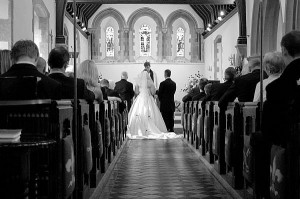 Often times, the wedding events can get the better of a couple and the point and purpose is lost in the colors, the flowers, the cake and the music – among a slew of about a million other ‘details’. We experienced this in our wedding preparations, to some extent, and know that it is a temptation for most couples. To keep it all in perspective… the wedding is all about the marriage. The marriage is all about sanctification! To be one with your helpmate and to help her get to Heaven. To be blessed (if it be God’s will) with children and to help them get to Heaven.
Often times, the wedding events can get the better of a couple and the point and purpose is lost in the colors, the flowers, the cake and the music – among a slew of about a million other ‘details’. We experienced this in our wedding preparations, to some extent, and know that it is a temptation for most couples. To keep it all in perspective… the wedding is all about the marriage. The marriage is all about sanctification! To be one with your helpmate and to help her get to Heaven. To be blessed (if it be God’s will) with children and to help them get to Heaven.
A topic that I am convicted by is, as many of you have read before, my saying “Make the Choice to Love.” It is so necessary and, in my estimation, the only way to give yourself fully to your spouse – by making the loving choice 100% of the time. Below is a previous article that I wrote for iibloom.com called “The Choice to Love.” I hope you like it and I hope it is helpful.
“Early in our marriage, my wife would ask me, in a somewhat sarcastic tone, “Are you making the choice to love right now?” It would stop me dead in my tracks to realize that I wasn’t. I like to think of myself as having a strong head on my shoulders and an ability to admit when I’m wrong. When my wife would ask that question, I knew that, in fact, I wasn’t making the choice to love and that I was dead wrong. I was not giving my wife the love and respect that she deserved. I took the unity that we had promised to one another in our wedding vows and I shattered it, so that I could be right. My need to be right was why I would argue. I would argue because I was stubborn. I was stubborn because I was self-centered. Notice that each of these scenarios contains choice and action. Instead of needing to be right, I should compromise and come to a common-ground understanding. Instead of arguing, I should suck up my pride and admit to my portion of the wrong doings and never, under any circumstances, should I place blame. (Placing blame activates defense mechanisms. Once defense mechanisms have been activated, good luck coming to the before mentioned common-ground understanding.) Instead of being stubborn, I should be humble. Instead of being self-centered, I should be marriage centered. I should make the choice to love.
choice and action. Instead of needing to be right, I should compromise and come to a common-ground understanding. Instead of arguing, I should suck up my pride and admit to my portion of the wrong doings and never, under any circumstances, should I place blame. (Placing blame activates defense mechanisms. Once defense mechanisms have been activated, good luck coming to the before mentioned common-ground understanding.) Instead of being stubborn, I should be humble. Instead of being self-centered, I should be marriage centered. I should make the choice to love.
If I always make the choice to love, I am making the decision that will best allow my marriage to grow and succeed. Love is a verb and requires action. The choice to love removes selfishness, pride and arrogance. Making the choice to love means and assures me that:
1. I am making the best decision for my marriage.
2. I am making the best decision for my spouse.
3. I am making the best decision for my family.
4. I am making the best decision for my family’s future.
5. I am making the best decision for myself. (By putting myself on this list, I am not forgetting that I am an integral part of the success or failure of my marriage.)
(The best decision, in this context, means making the decision that I know to be the best, at the time, with the knowledge and understanding that I have. The best decision is made with clear conscience and free from clouded judgment.)
The most important aspect of making the choice to love is a commitment from both spouses. Making the choice to love does not work when only one of the spouses participates. If you are in a relationship where your spouse does not respond to being asked to make the choice to love, I suggest that you have a serious conversation with them about their actions and how it might negatively affect your marriage relationship. (This is not gender specific, both the husband and the wife must make every effort to make the choice to love.) Insist on this, your marriage is counting on you. This principle will not work if both parties are not fully committed. We made a commitment to each other that whenever one of us mentions “make the choice to love,” we promise to immediately stop our behavior and make the conscious decision to love. We promised one another. It requires devotion and perseverance. We put aside our bad habits, pride and selfish tendencies and choose to love the other fully and without reservation.
The saying, “Make the Choice to Love,” holds a great amount of depth. It radically transformed our marriage. I want everyone to love marriage, either their own or simply the thought of marriage. It is possible for everyone to have an amazing, loving and wonderful life-giving marriage. “Make the Choice to Love.”
The Catholic Church is Booming
 I know the reality of reports and surveys and statistical data – you can make them say what you want to. We see skewed results all the time. There are, however, some statistics worth looking at. For instance, statistics like the information below, is encouraging and should give us (faithful Catholics) hope. I like this information because it doesn’t come from a particularly orthodox source. We (Catholics) are often the butt of jokes, the slander of the day and ridiculed and persecuted for our conservative (truthful) beliefs. The last allowable form of prejudice in our land – anti-Catholicism. Maybe as we continue to flourish and continue to seek truth, we will band together and put an end to the ludicrous culture of death.
I know the reality of reports and surveys and statistical data – you can make them say what you want to. We see skewed results all the time. There are, however, some statistics worth looking at. For instance, statistics like the information below, is encouraging and should give us (faithful Catholics) hope. I like this information because it doesn’t come from a particularly orthodox source. We (Catholics) are often the butt of jokes, the slander of the day and ridiculed and persecuted for our conservative (truthful) beliefs. The last allowable form of prejudice in our land – anti-Catholicism. Maybe as we continue to flourish and continue to seek truth, we will band together and put an end to the ludicrous culture of death.
From Al Kresta earlier today:
“Catholic League president Bill Donohue comments on new survey data profiling Catholicism:
All we ever hear from the wild-eyed critics of the Catholic Church, including the dissidents within, is that the Church had better “get with it” and change its teachings on abortion, homosexuality and women’s ordination. Yet it is precisely those religious institutions that are the most liberal on these issues—the mainline Protestant denominations—that are collapsing. Not so the Catholic Church. Indeed, its numbers are going north while the mainline denominations are going south.
with it” and change its teachings on abortion, homosexuality and women’s ordination. Yet it is precisely those religious institutions that are the most liberal on these issues—the mainline Protestant denominations—that are collapsing. Not so the Catholic Church. Indeed, its numbers are going north while the mainline denominations are going south.
The latest findings by the “Emerging Models of Pastoral Leadership” project, a collaborative effort with Georgetown University’s Center for Applied Research in the Apostolate, are illuminating. In the last 40 years, the Catholic population has increased by 75 percent; it has grown by 50 percent since 1990. More important, Catholic attendance at Mass is up 15 percent since 2000. And in the last five years, contributions have increased by 14 percent. It is also important to note that there has been a 40 percent increase in Latinos in the Church over the past five years.
Shedding more light on the statistics is a study released a few months ago by the Pew Research Center’s Forum on Religion. Its “Landscape Survey” found that of those Catholics who have left the Church, roughly half became unaffiliated while the other half became Protestant. Regarding the latter half, only 23 percent did so because of the Church’s teachings on abortion and homosexuality; only 16 percent left because of the way women are treated. Importantly, two-thirds of these Catholics elected to join a Protestant evangelical church.
In other words, disaffected Catholics who left for another religion opted to join a more conservative church. That they did not run down the block in search of a mainline denomination—one that entertains the liberal agenda on issues governing sexuality and women—is telling.
It’s time some people took a hard look at the data and made some hard choices. This is great news for the Catholic Church.”

